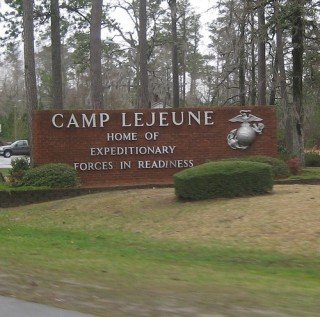 By William R. Levesque, St. Petersburg Times Staff Writer
By William R. Levesque, St. Petersburg Times Staff Writer
The Marine Corps insists that documents detailing water contamination at Camp Lejeune have been available to federal scientists for years.
But scientists at the agency studying whether Lejeune’s polluted water caused cancer and other illnesses say the Marine Corps and Navy failed to disclose electronic databases containing more than 700,000 documents.
One of those documents estimates that between 400,000 and 1.1 million gallons of fuel were spilled at a base fuel farm, a revelation crucial to understanding whether tens of thousands of people at the North Carolina facility were exposed to poisons.
The federal Agency for Toxic Substances & Disease Registry complained to the Corps and the Navy in a March 22 letter about the failure to reveal the databases. ATSDR gave the Corps an April 15 deadline to provide any further missing documents.
ATSDR officials say they now have unfettered access to the databases, but question why the Corps didn’t provide access sooner.
“This is catch me if you can,” said Jerry Ensminger, a former Marine drill instructor who serves on two panels advising the federal government on Camp Lejeune water issues. Ensminger’s daughter died of leukemia in 1985 that he believes was caused by contaminated water.
“The Marine Corps just wants to delay ATSDR’s work as long as they possibly can.”
A Marine Corps spokesman, also speaking on behalf of Navy officials who oversee the base, denied anything was withheld.
“We are very interested in ATSDR completing their work, and the Marine Corps has made every effort to ensure that all information in our possession is available to ATSDR researchers,” Marine Capt. Brian Block said in a statement.
“We will continue to do so because we are committed to using the best science to get our Marines and sailors, their family members and former residents the answers they deserve.”
Up to 1 million Marines and family members may have been exposed to polluted water at Camp Lejeune over a 30-year period ending in 1987, ATSDR estimates.
So far, 167,412 people have signed up for a Marine Corps health registry. More than 13,000 are from Florida — the second-highest total in the nation behind North Carolina.
ATSDR is working on several fronts. It is building a model to estimate the levels of contaminants in Lejeune water — from the carcinogen benzene, which is found in fuel, to industrial cleaning solvents — dating to the 1950s.
The agency, among other things, also plans a mortality study to determine if residents of the base had a higher death rate than other populations.
Marine Maj. Gen. E.G. Payne told ATSDR in a letter that the recently opened databases simply duplicate in digital form documents that already were available.
ATSDR says it can’t verify whether some or all of the documents were available elsewhere. But the agency says the document estimating fuel spills of up to 1.1 million gallons was not, in fact, previously disclosed.
In any case, ATSDR scientists prefer working with electronic records, which they say reduce the chances of missing something in mountains of hard-copy files.
The ATSDR said one of its contractors first discovered a password-protected Web portal containing information on underground storage tanks, including fuel tanks, at Lejeune in March 2009. This portal contained 1,535 separate files.
Then on March 2 of this year, ATSDR said, the Corps/Navy told the agency about the existence of a second database that ATSDR didn’t know about. This was a collection of 700,000 documents.
And there was yet a third database still undisclosed by the Corps and Navy, ATSDR said. It contains 4,761 files.
“It’s interesting that there is information that we continue to discover that we need to go through,” Thomas Sinks, deputy director of the National Center for Environmental Health/ATSDR, said in an interview.
“There is a significant burden for us,” he said. “It’s difficult enough to go through the data we already have. As we discover more information, it just makes our job more difficult.”
Members of a panel advising ATSDR on Lejeune water issues do not have access to the Web databases despite requests that the Corps provide it. The Corps said documents are available to the public via Freedom of Information requests.
This isn’t the first records fight between the Corps and ATSDR. Since the mid-1990s, ATSDR has complained about the timely production of documents.
As first reported by McClatchy newspapers, congressional investigators also are seeking documents from Navy Secretary Ray Mabus to learn more about, among other things, the extent of fuel spills at Lejeune and when ATSDR was first told about benzene in drinking water.
Rep. Brad Miller, the North Carolina Democrat behind that investigation, could not be reached for comment Monday.
ATTENTION READERS
We See The World From All Sides and Want YOU To Be Fully InformedIn fact, intentional disinformation is a disgraceful scourge in media today. So to assuage any possible errant incorrect information posted herein, we strongly encourage you to seek corroboration from other non-VT sources before forming an educated opinion.
About VT - Policies & Disclosures - Comment Policy



